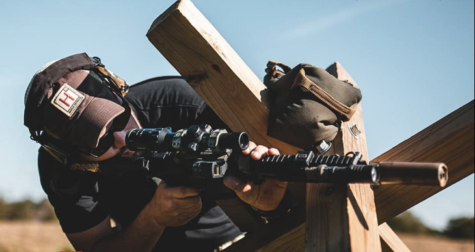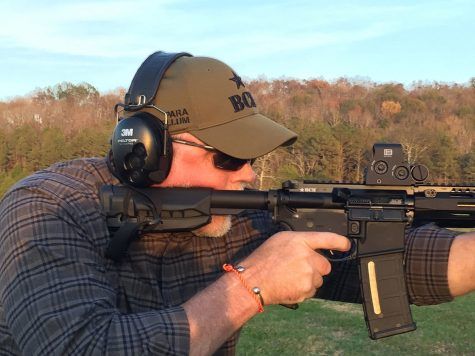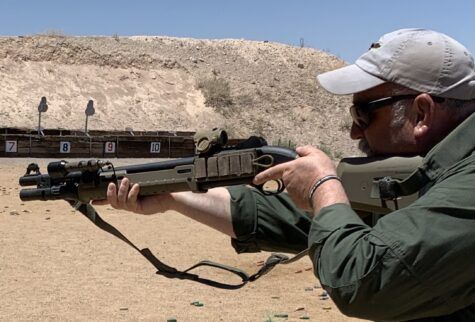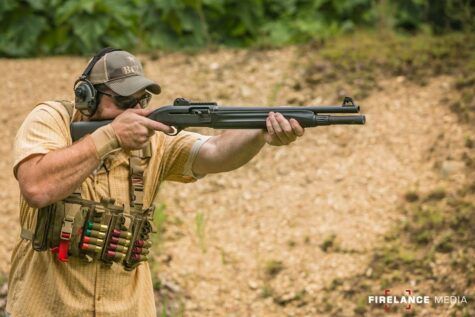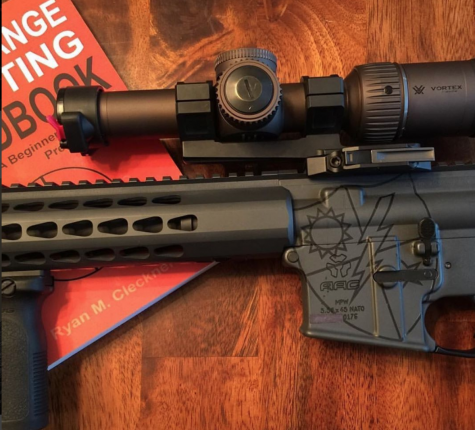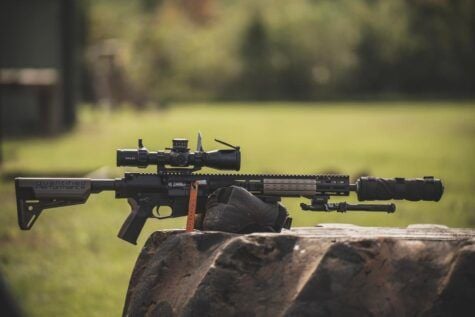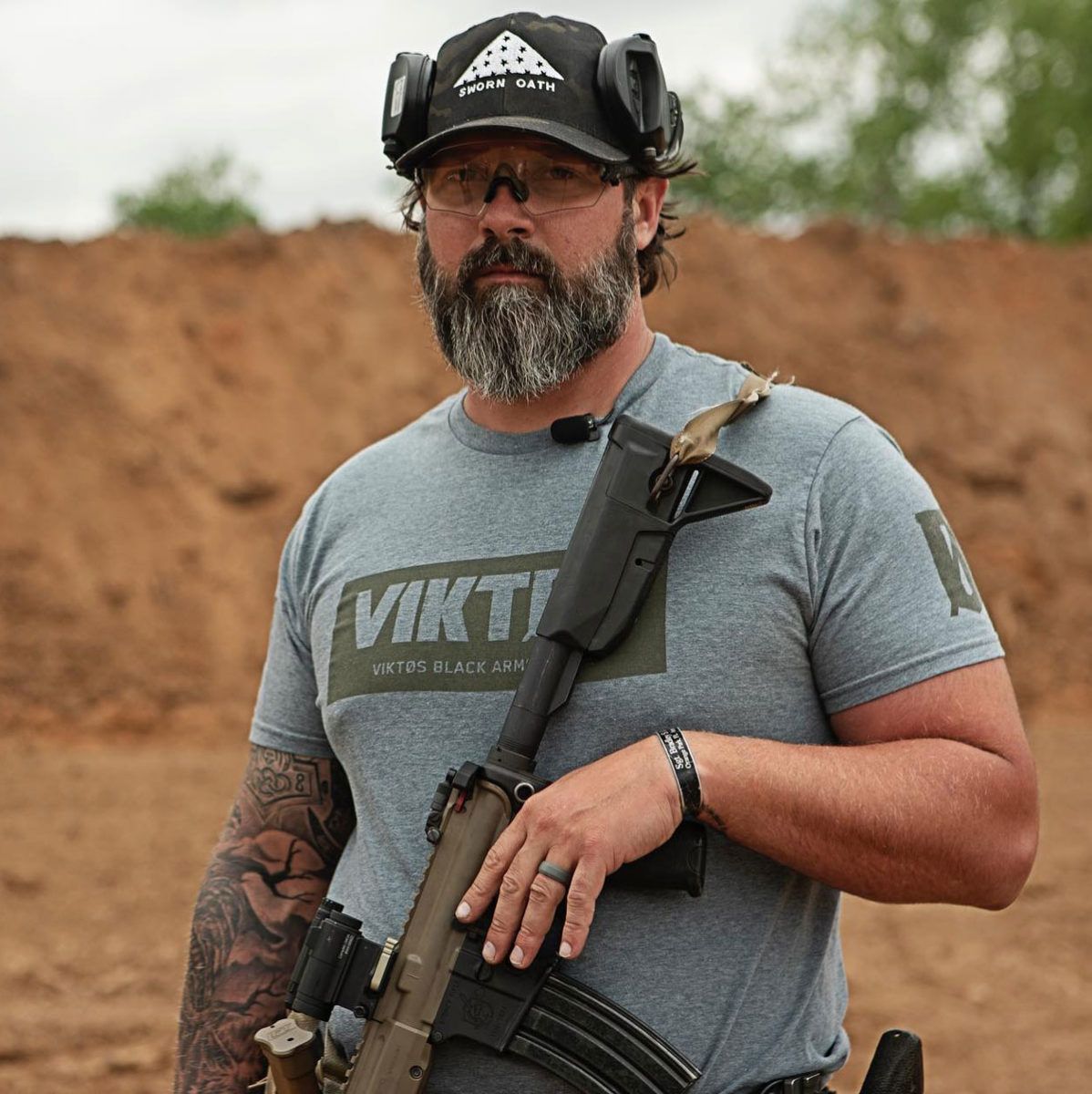
ARBuildJunkie spoke with Jared Reston of Reston Group about the AR-15’s vital role in law enforcement and just how critical it is for LEOs to seek out their own training beyond what they receive at the academy. We also discuss the true meaning of “proper mindset” and the real-world usefulness of competition shooting.
For readers who may not be familiar with Jared Reston’s background, here are some details via the Reston Group web page:
Jared has been involved in the successful resolution of over one thousand S.W.A.T. missions, including several lethal force incidents…For his actions in a January 2008 shooting, he was awarded The President of the United States “Medal of Valor”, American Police and Hall of Fame’s “National Police Officer of the Year”, Fraternal Order of Police’s “Florida Police Officer of the Year”, and the State of Florida’s “Law Enforcement Officer of the Year.”
Q: Jared, can we begin with a bit of background on how and why Reston Group was started?
Jared Reston, Reston Group – I’ve been a policeman in Jacksonville, Florida for the Jacksonville Sheriff’s Office since 2001. I’ve been on their S.W.A.T. team since 2004. I’ve had duties ranging from court house, to patrol, to task force, to gang detective, and now, I’ve moved on to just being full-time S.W.A.T. But with that duty…we’ve moved from not just S.W.A.T. missions where we’re fully decked out, wearing green…We also do a lot of criminal apprehension of wanted felons for violent crimes.
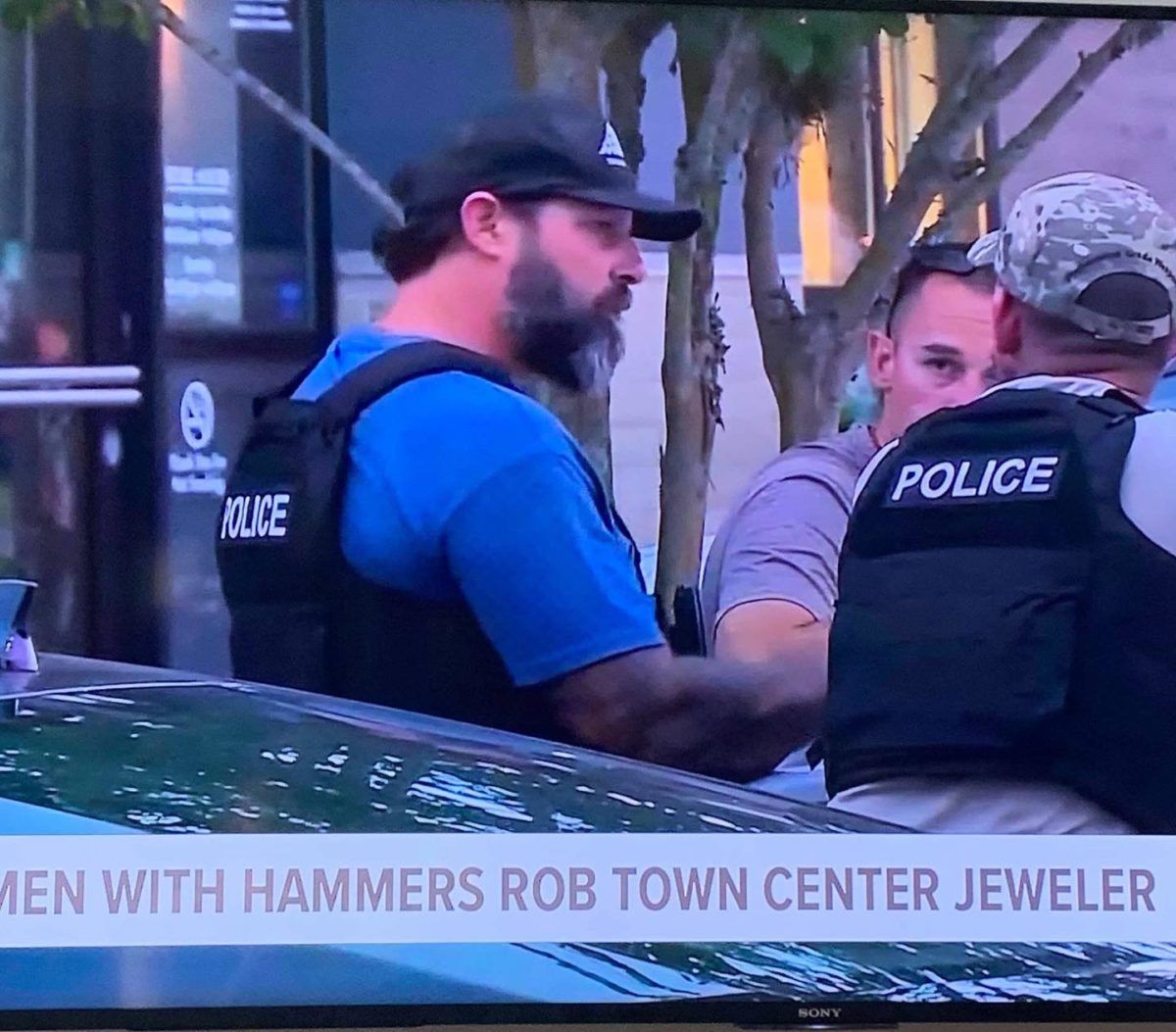
I started Reston Group around 2010. After my shooting in 2008, I began to go around the country and speak to different agencies. I think I lived in a little bit of a bubble…I thought all agencies got the training that I was able to receive. However, I quickly found out that was not the truth.
So, I wanted to get out and take all the training that I’d been so lucky and privileged to have due to the funding and support of my agency, and bring it to law enforcement and civilians in a package that we could all use. We could also round some corners in weeding out some of the junk that’s out there. We could put in true stuff that works for S.W.A.T., from patrol, to everyday shootings…actually shooting people…and share what works and what doesn’t.
Q: Jared, what would you say to a young officer about the importance of getting out there and seeking training beyond what they are initially provided?
Jared Reston, Reston Group – Just because they are at the academy, or just because they are at the firing range – that does not make them the best shooters. There are people in the world that make true livings teaching this stuff. These are the people you need to reach out to….even just to see if the people that are teaching at your academy are teaching you the right stuff.
So, it might just be a validation, or you might learn something new, but regardless…when it comes to training, you need to invest in yourself as much as possible. This is a job that can kill you. Or, this is a job where you can save someone’s life. You don’t always have to train to save yourself. Train to save others. Be a professional and seek out as much training as you can get.
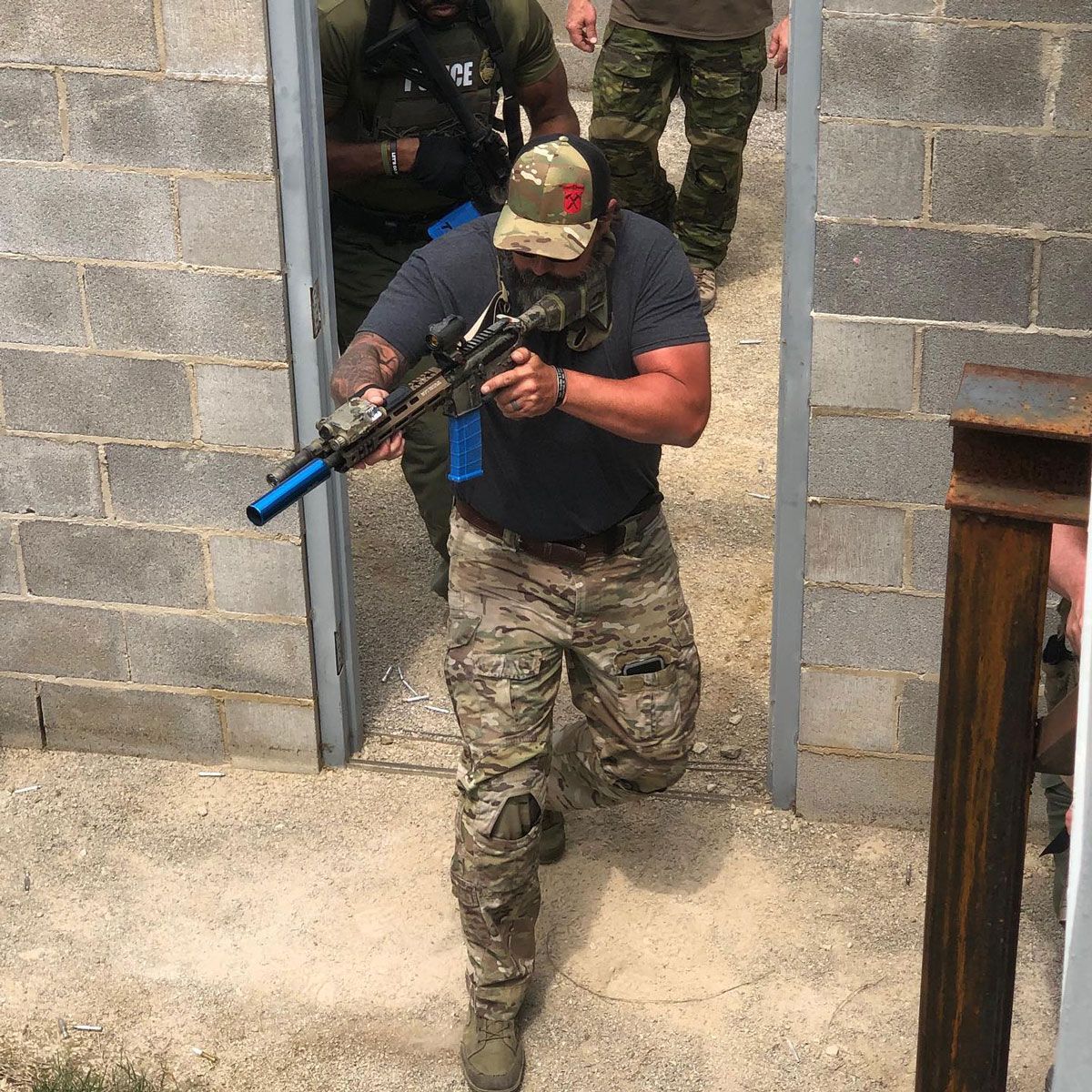
Q: Can you talk about the idea that it’s important to not just be content and assume the level of training you are receiving is enough?
Jared Reston, Reston Group – Right, so when you go to basic law enforcement…that’s what it is…it’s basic. That stuff will get you through an officer-involved shooting, but it’s not going to get you through a gunfight. That’s not going to help you prosper in winning….just learning the same regurgitated stuff and training to the least common denominator. It’s not going to do it for you. You have to reach. If you want to succeed, you have to learn how to do it.
If I want to be a race car driver, I’m not going to go to the high school drivers education teacher to learn how to race a car. That’s not how it’s going to work. You have got to get better at your job. You’ll get the basics, but then you need to learn how to work the basics to your advantage and get a mastery of the basics.
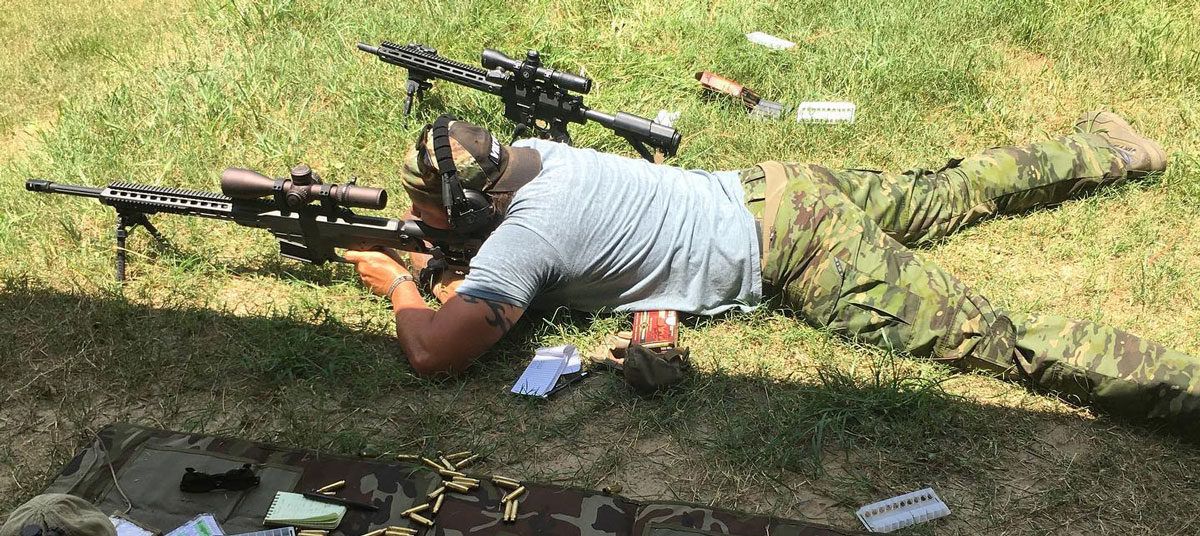
Jared Reston on Investing In Yourself
As far as spending your own money to train…I always get on people about that. I still spend my own money to train and I own my own training company. It’s super important that you get your mindset right and invest in yourself. Some will complain that their agency is broke…and I get that.
But remember, if you get killed in the line of duty, your agency is certainly going to feel bad for you. For about two weeks, they’ll wear your band, they’ll remember you, and they’re going to have fundraisers for your family. But after that, that big ball has to keep on rolling. Criminals don’t give people mourning breaks…So, pretty much you’re going to be a name on a plaque that gets remembered once a year by the masses. But who will fall apart is your family. That ball will implode.
Jared Reston – “I’m passed that now. I’m training to save others”
So, I don’t train for me to “get good.” I don’t train for me to not die. I’m passed that now. I’m training to save others…to be the best, and for my family. I train to make sure they know I’m going to make it home.
But even then, it’s not guaranteed that I’m going to make it home…but my family will know I put in every effort I could. They will know that I was training physically, mindset wise…and that I did my best to get home to them.
Look, I’m good with dying in this line of work. It’s an honorable death. It is what it is, but you’re going to have to take it from me. I’m not giving you anything.
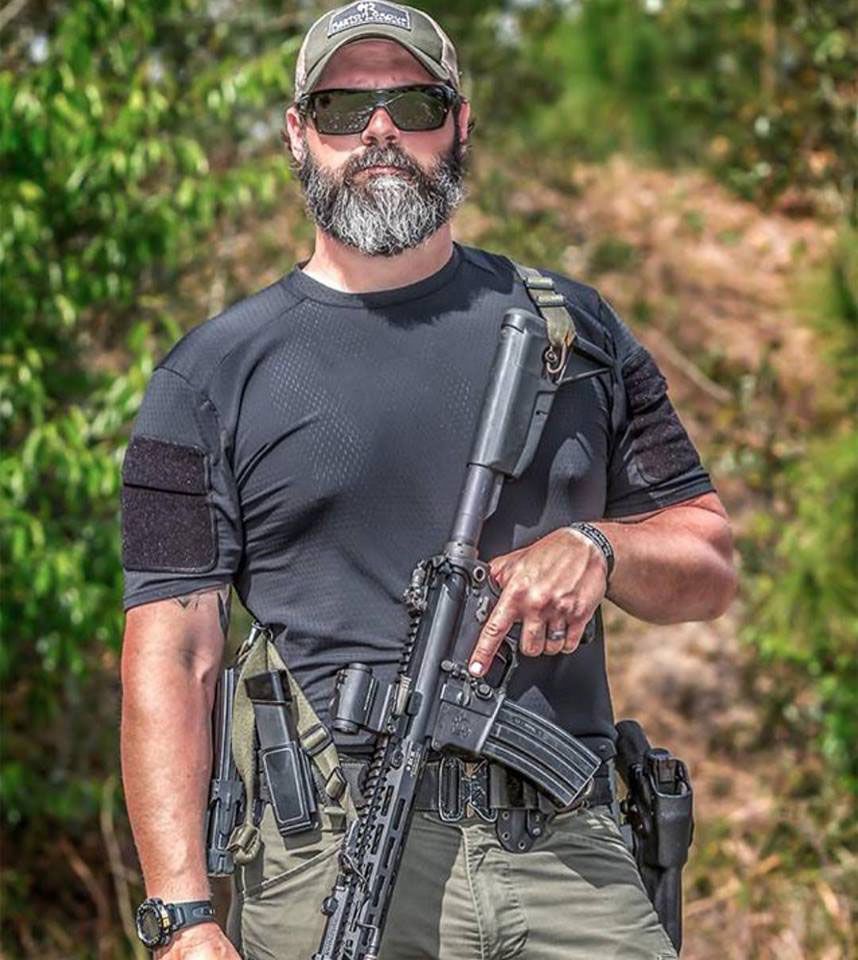
Q: With all of the training you do at Reston Group, can you talk about some of the most common mistakes you see, or is it more of a “you don’t know what you don’t know” situation?
Jared Reston, Reston Group – That’s mostly it – they don’t know what they don’t know. They’ll go on the internet and read some things…my big thing now is people are really going for these fast splits. The shot time and the internet has really ruined tactical training (laughs).
Everybody wants the fast splits, but you’re out-shooting your brain. When shooting people, that is what really matters. What’s happening? What problems are you facing? The shooting should happen through training, almost subconsciously.
That decision to shoot is the hard part. “Who can I shoot? When can I shoot? Should I shoot? Can I shoot?” Those problems around the shooting…that’s what we need our bandwidth for. That’s what training opens up. It’s not necessarily the “getting better at the shooting.” Yes, you are getting better, but then you’re making that automatic so that you can open up your brain and you can fix the problem in front of you.
Jared Reston on Fast & Sloppy
Again, I just think that too many people are pulling the triggers way too fast, being sloppy on the gun…They also count big misses. To me, on an A-zone sized target, anything outside of that is a miss in training. I get that my groups are going to open up a bit in real-life, but if I keep a tight standard in training then if my group opens up a little bit more, I know I am still getting good hits. But these people that are using a whole target as a hit zone…that’s just crazy to me.
The human body is a big target – I get that. But the kill zones within that human body are very small and very precise. We have to hit the kill zones. Hits to just meat and appendages…they do not stop fights. I’ve been shot. It does not hurt. The pain of it does not stop anything. The only thing that would have stopped me that day was putting my lights out. That’s the only thing that stopped the man that was trying to kill me that day was me putting his lights out.
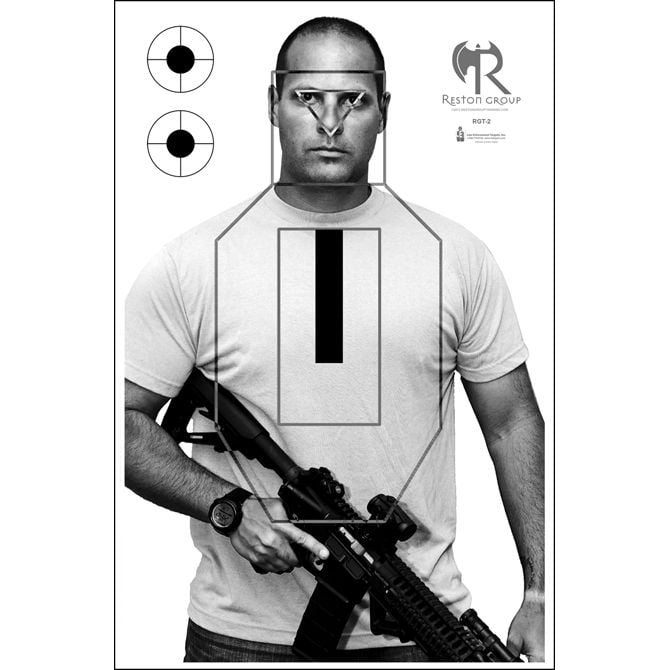
Q: That reminds me of a recent incident making the rounds…a criminal with a knife wearing a yellow shirt…
Jared Reston, Reston Group – It was brought to me early in my career that bad guys are going to continue what they were doing prior to getting shot until you put their lights out or they give up. The human body is very unimpressed with pistol rounds, or any kind of rounds really. I’ve seen people shot with rifles and it didn’t affect them unless it does what it’s supposed to do.
But the guy in that yellow shirt, he was probably a little bit wacked and determined…who knows? But, I think that first officer who shot him, he thought that the guy was just going to give up. That’s how they’re trained in the movies, trained over time that if you just shoot them a few times, they’re going to lay there.
Jared Reston on Down…But Not Out
The guy, even when he got shot, he was “trained” that he should go down and then lay there. Well, he sat there for a second and realized “I’m not that hurt. I can get up and keep doing”, and that’s what he did. So, just because they are shot does not mean that they are out. Just because they are on the ground does not mean that they are out. They can quickly regain a little bit of ‘oomph’ and realize “oh shit, I’m o.k. to do this.”
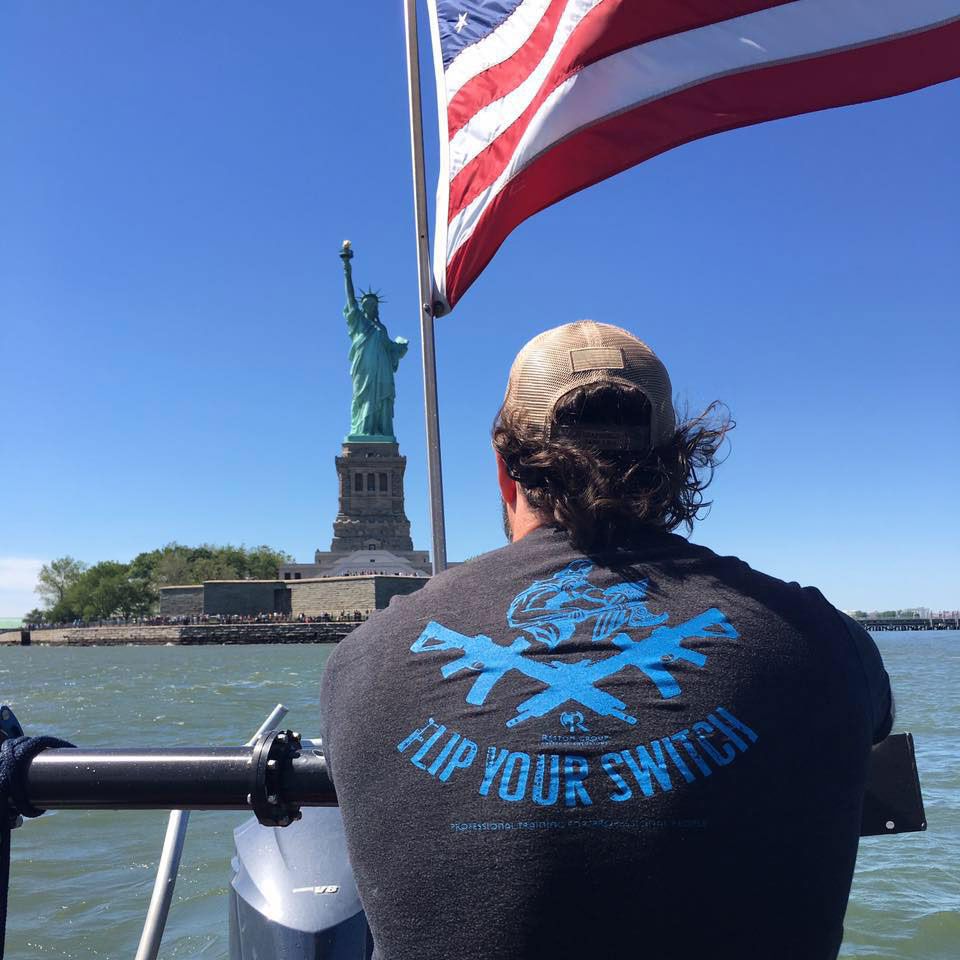
Q: Can you talk about the importance of a carbine like the AR-15 for law enforcement?
Jared Reston, Reston Group – It is a must…Just the ability to stand off, to get through distance and stay back up off of targets. You get more accuracy…less over-penetration. It’s so huge what the patrol rifle has done for law enforcement. It’s become a must. For one thing, your hit percentage goes way up with a rifle because it’s easier to shoot than a pistol.
To me, going in with an inferior weapons system with a pistol round, up against maybe somebody armed with a rifle…that’s crazy. If you’re an officer armed with a rifle versus a suspect armed a pistol, you’re going to get better hits, better terminal ballistics. That combination wrecks dudes, and that’s exactly what you need in a gunfight. Rifle rounds are better for putting threats down, and that’s it.
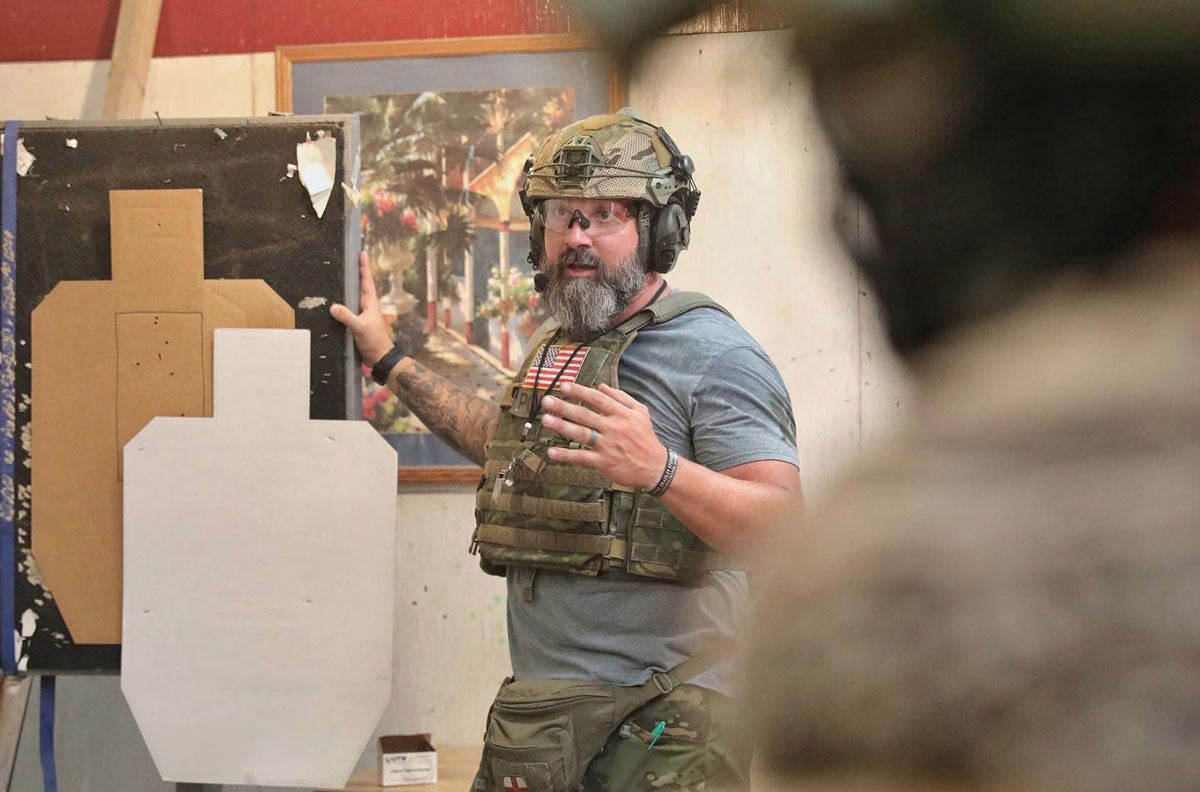
Finally, I just don’t want a bunch of pistol rounds going all over God’s green earth because the officers are missing…when instead the officer could could sit there with a rifle with a little bit of distance and just accurately put it on them.
Q: Is there any difference between a patrol rifle and a rifle that would be used for S.W.A.T.?
Jared Reston, Reston Group – I’d say it’s all pretty much the same. Minimums for any fighting rifle are a red dot sight, a flashlight and a sling. On a S.W.A.T. weapon, what you might also get is a laser because you might have night vision capabilities on your team. But a fighting rifle is a fighting rifle.
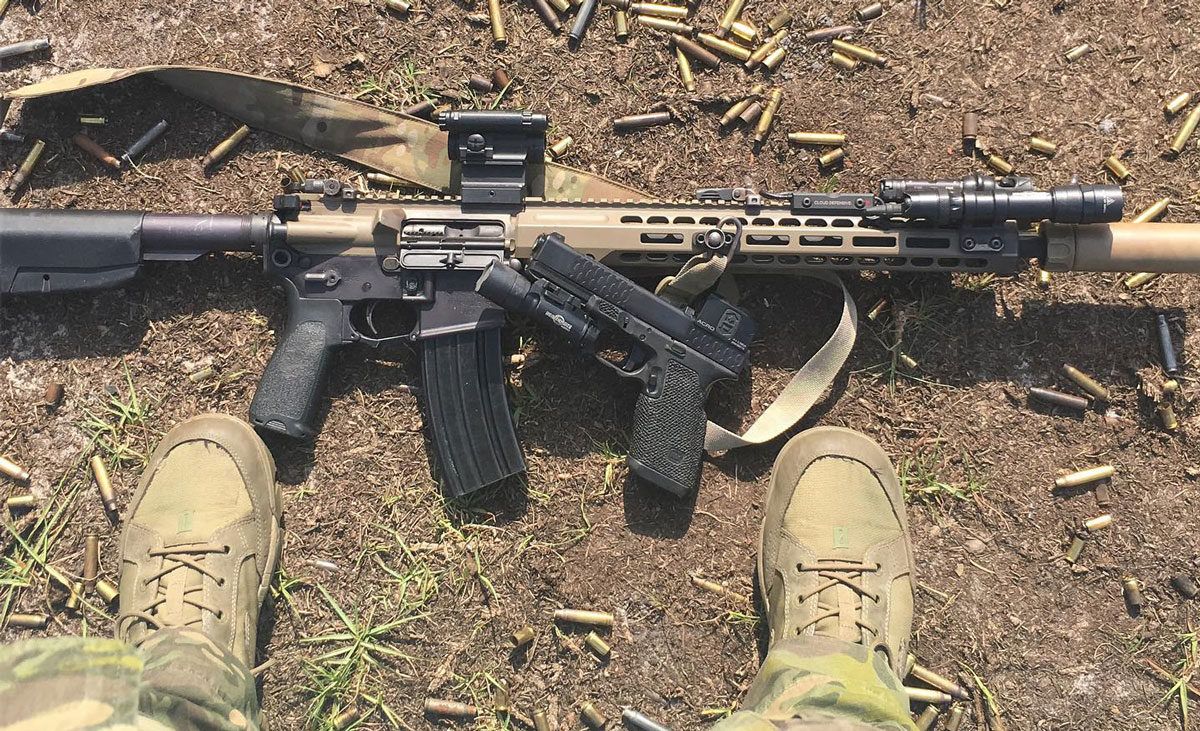
Beyond the minimum, you’d then add a free float rail. But the rifles should be about the same. There’s nothing special about a SWAT rifle versus a patrol rifle. Some S.W.A.T. teams may have suppressors or shorter barrels, but that’s not a necessity.
Now, I would personally like to see more patrol rifles with suppressors on them. I think it a takes a little bit of the shock out…especially when you are learning or you have people who are not “gun people.” The suppressor tends to tame and soften the rifle…it’s still loud, but I’ve found it easier to train someone who is not a “gun person” with a gun with a suppressor on it.
Q: How do you set up your personal AR as far as optics?
Jared Reston, Reston Group – I’m a red dot guy. I’ve gone the LPVO route. Back in 2005, I was running an ACOG with the Docter Optic on top…but I’ve always found myself going back to the red dot. Anytime I’ve done anything with the magnifier or the LPVOs, all I’ve ever used them for is reading tags or something. So, it’s not worth the weight.
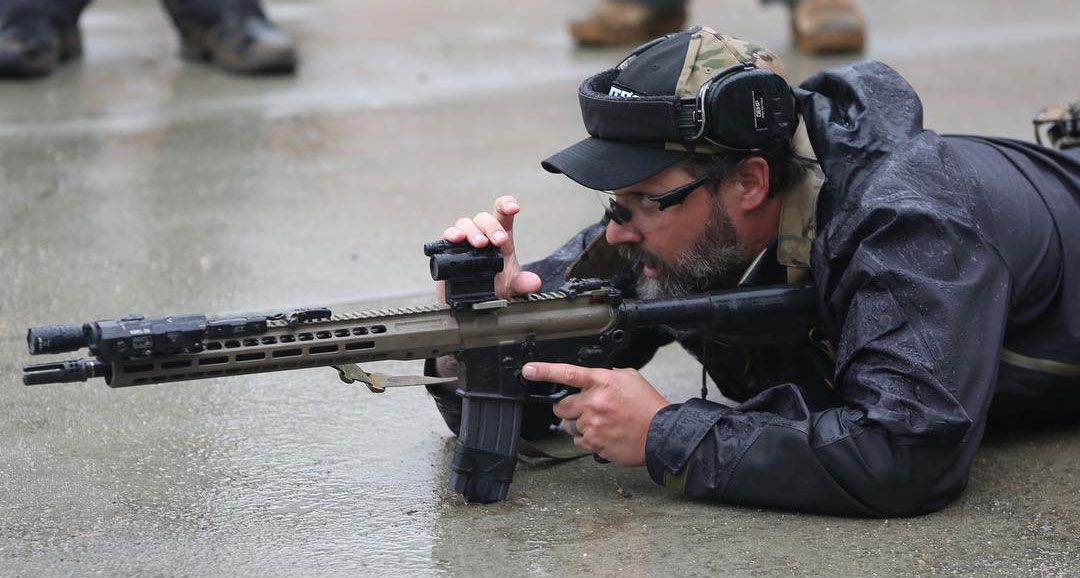
LPVOs work well really great on the flat range, where I’m snapping up or whatnot, but as soon as you start getting into weird positions around cars, or rolling the gun over in CQB, going at extreme angles like across your body on the move, you’ll start to get scope shadow and things like that, which really slow down what happens.
Jared Reston – “I’m talking about life”
People will say they can snap up with an LPVO, and that’s fine, but that’s with a target in front of them. I’m talking about life. So, even with an LPVO, I still run a red dot canted off to the side at 45 degrees. Any magnified optic I have will have that canted red dot with it. So, if I’m coming across my body and I’m getting scope shadow, I can just roll the gun a little bit and there’s my red dot and I’m still good to go.
So for those sort of reasons, I just don’t see it with the LPVO. I run an Aimpoint and it does everything I need it to do. Now, I do have guns with LPVOs on them, but my go-to gun has just an Aimpoint.
Q: I recently spoke with William Larson about how he would see departments buy inexpensive rifles for their officers only to experience a myriad of issues. Can you share your feelings on the importance of quality equipment when it comes to law enforcement…what difference you see in a $500 dollar rifle versus something more expensive?
Jared Reston, Reston Group – There’s a huge difference in quality. You don’t necessarily need a $2,000 rifle, but you do need a $1,200 dollar rifle, let’s say. With that, you’re going to get quality parts out of it.
A lot of the companies sell these 500 dollar guns…and people who buy them will talk to me about how they have great warranties. I’ll hear someone say “well, they say if something goes wrong, I can just send it back and they’ll send me a new one.” Well, why are you having to send a gun back? You should instead be paying for quality parts that just work.
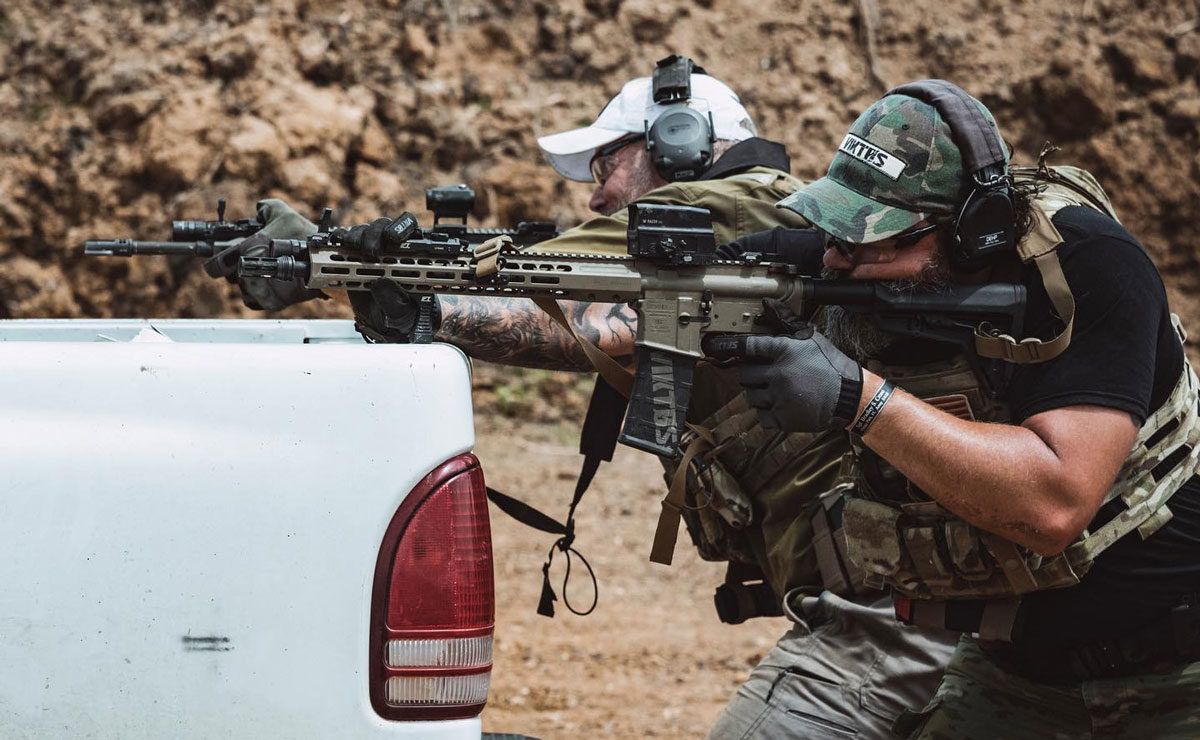
I think most law enforcement agencies don’t shoot enough to really understand when their guns break. So, they’ll go through maybe one class and they’ve shot 500 rounds. Well that gun maybe breaks at round number 502. So, now they’re sitting there on duty with a gun that might fail them when it counts. So, it’s super important to have quality equipment. You don’t have to go crazy…but you can buy a nice strong gun with a rail system, a red dot optic, iron sights, a sling and a light and you’re good-to-go.
Jared Reston on Buying Your Own Rifle if Possible
Even if you just supply the officer with the gun with iron sights and then allow them the opportunity to buy a good flashlight and a red dot sight or an LPVO or whatever they want to spend their money on…let them run with that. My agency does a great job of letting officers buy their own rifles. They have to meet certain specs…the range master approves it, but then you get to carry your personal rifle on duty.
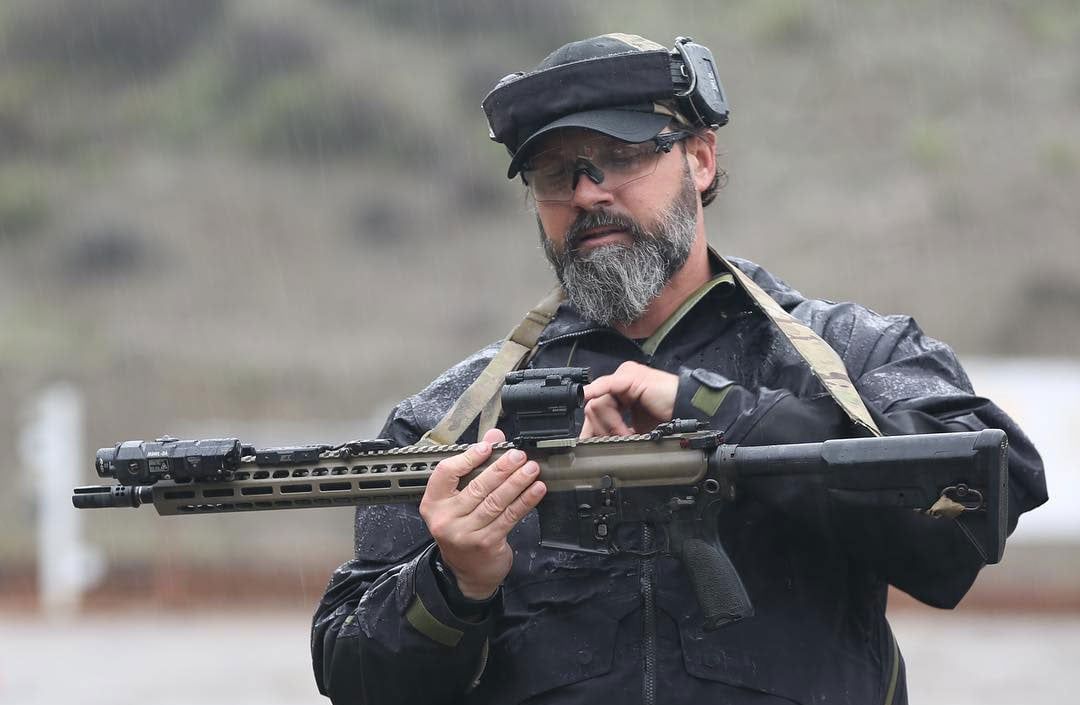
Q: I’ve heard that some officers have a reluctance to spend a lot of money because they don’t want their firearm taken from them should something happen in the line of duty. What would you say to someone like that to dissuade them of that notion?
Jared Reston, Reston Group – It might get taken away…but who cares? That’s a thousand dollars on something that might happen a few times in your career. It’s happened four times in my career, and in three of those shootings I have been involved in, they were my personal weapons.
You’ll get them back. You may not get them right away, but you’re going to get them back. You have to invest…and if you’re thinking about that, then you’re thinking totally wrong. These are tools.
I do know Sons of Liberty has a great program where if you are a police officer and you shoot it and they take your gun, they will replace the gun. It’s a great program and a great thing they do for law enforcement.
Q: Moving on, what’s your opinion of competition shooting for law enforcement officers? Does it help?
Jared Reston, Reston Group – I participate and I recommend it. It does put stress on you. You have to inoculate yourself to stress as much as you can. If you’re there to really do well, it is going to put some stress on you. Competition does a lot of good things. You get to plan your stage. When the buzzer goes off and something goes wrong, if you can stick to your plan, then you’re engaging your brain and staying in the fight…which is a great thing.
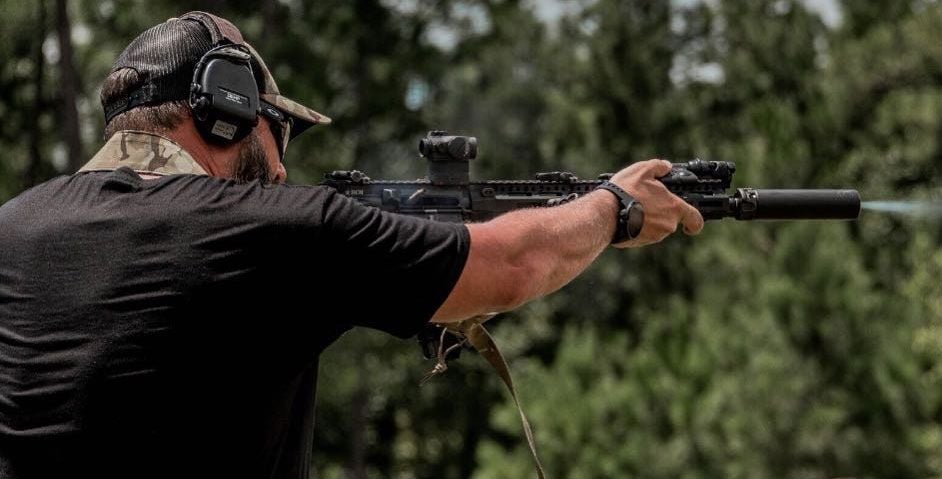
That said, as a professional shooter, as in a law enforcement or military guy, you cannot let yourself go down the rabbit hole of becoming a competition shooter. You have to know the difference. When I started competition shooting, I found myself putting brakes on guns and doing things that were just a little silly. I started stepping outside…and I had to put a stop to that.
I’m a type-A guy and while I am doing competition, I want to win the competition. So, I started training for competition, and you cannot get too sucked in and let that go on. Rather, I needed to make sure I was framing what I was doing in a proper way.
Jared Reston on Competition – “I shoot MY game”
So, I do shoot competition and I like it. I even win a lot of my local matches or I am in the top three every single time I shoot…but I shoot MY game. What I don’t do is I don’t go crazy, blistering fast and forget my mechanics or anything like that.
Finally, I think competition also helps you train more. That’s because you’re playing a game where you actually have something to look forward to. It can be hard to train for a something you may never play for in your whole life or career, if you know what I mean. Having the competition side of it kind of keeps you trained, keeps you focused, and the bottom line is shooting a gun is certainly a lot better than not shooting a gun.
Q: “Mindset” a term that gets used a lot. What does having a “proper mindset” mean to Jared Reston?
Jared Reston, Reston Group – The “proper mindset” is being able to do any job under any circumstance, in any scenario…Your mindset, it’s almost like “who you are.” You can’t be a game day player. You have to live this stuff, work this stuff, and you have to go to the range, go train. Everything that we talk about that you have to do, that’s all part of mindset.
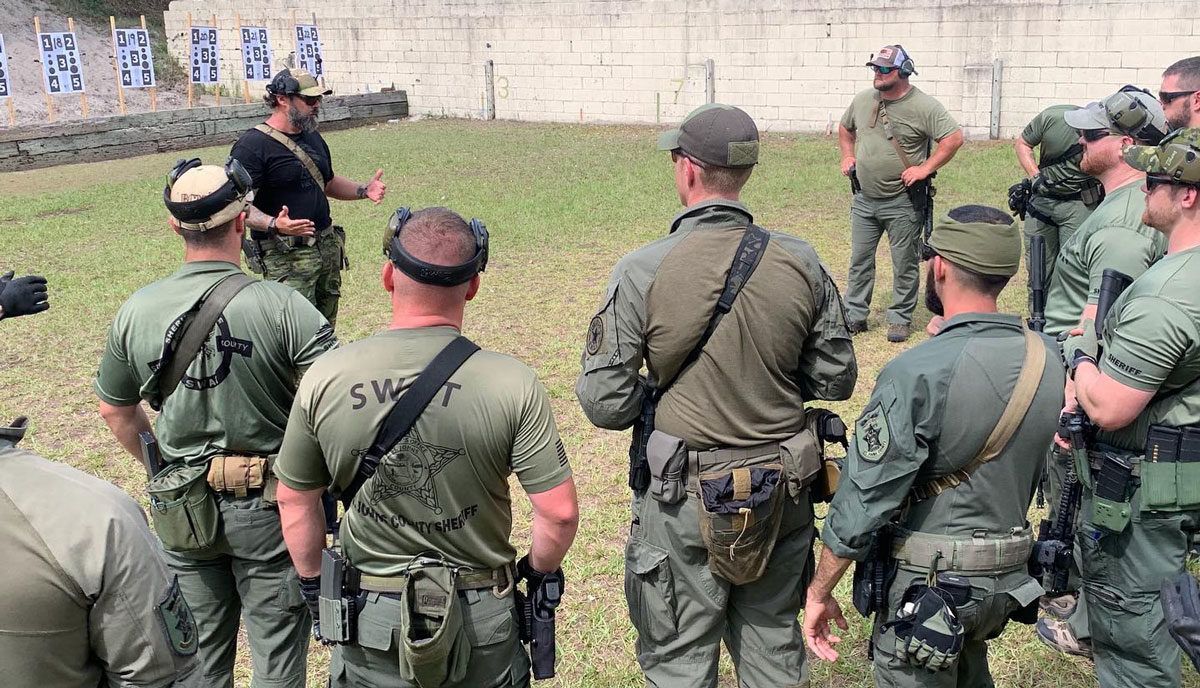
You can’t just say “aw, I’ll shoot that guy” or I’ll do this or that…that’s great, but you have to have the skills to back it up. There’s a lot of luck that plays into gunfights. All mindset did for me was after I was shot, it kept me in the fight.
“Make Mindset a Way of Life”
After that, it was skill that helped me with the fight. So, you have to be able to shoot once the mindset kicks in and says “do your job”. You now have to be able to accomplish the job. So, my advise is just make your mindset a way of life. Also, be sure to set rules and boundaries for yourself early, because you’re never going to be able to do it when the time comes, at that actual moment.
Q: Finally, are there any other things that I have not asked that you think are important for readers to know? Are there things that are not talked about enough?
Jared Reston, Reston Group – Not talked about enough? It’s not talked about enough…the fact that the actual act of shooting people is very easy. The decision to shoot is the hard part…when to shoot, what to shoot, who to shoot…and that’s where you’re going to need to start opening up your bandwidth when it comes to training. Not just training strictly the shooting, but also starting to put some decision making into your training. It’s important that you start doing some problem solving.
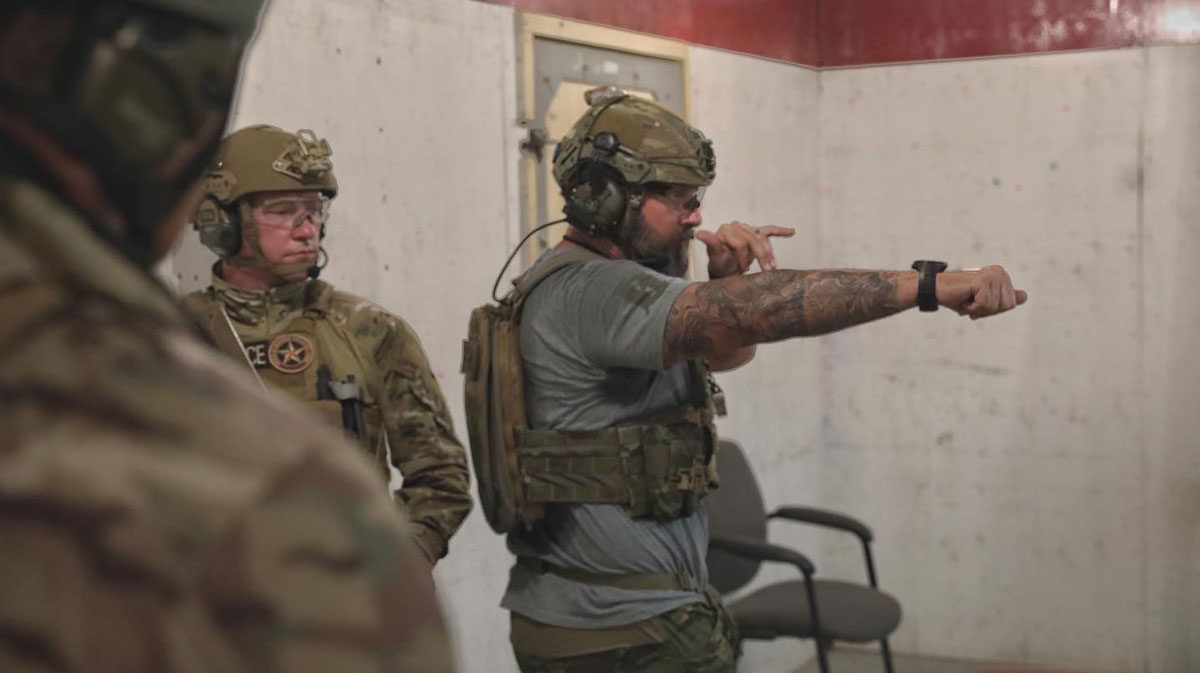
Jared Reston on Problem Solving and Honing Your Skills
So, for me when I’m doing CQB, the mission is not to shoot everybody or not shoot everybody in the house. The mission for me is just to clear the structure.
If you have to shoot, you’ll shoot…and that’s just doing the job. But, you should add a little bit more problem solving, rather than just working so hard to get a sub-second draw or something like that…if you’re a professional gun carrying person.
One simple way to look at it is to break down your training day like you would a practice at football. You go in, warm up, go into individual flat range skills, then afterwards, you all come together and do a scrimmage. The scrimmage is the actual test where you are putting some decision making in there…but before that, you had trained hard on the skills.
###
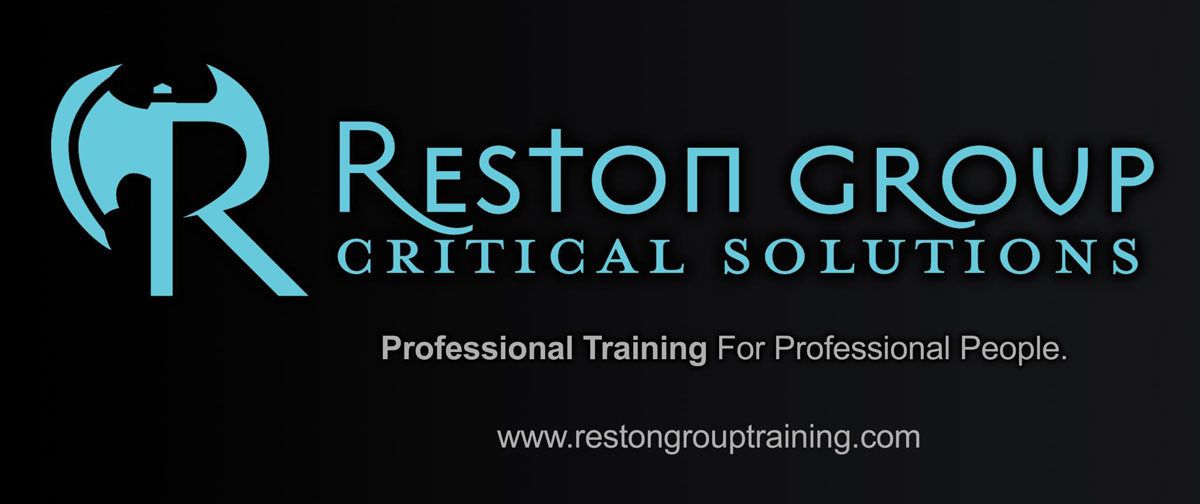
8 - 8Shares
